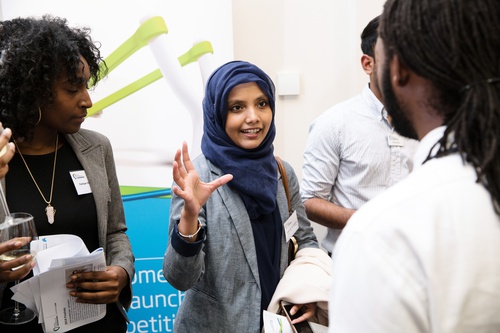
August 7, 2018, by The Ingenuity Lab
Building work-ready skills whilst studying
“Good judgment comes from experience. Experience comes from bad judgment.” (unattributed)
It is widely recognised that whatever the level of educational qualification achieved, studying alone does not equip students to have ‘work- ready skills’. There are many practical, less tangible accomplishments which are just as important in preparing for employment, whether that’s working for someone else or setting up your own business.
These ‘work-ready skills’ include things such as communication, teamwork and adaptability, qualities which are needed in the everyday world of work to enable you to engage, cooperate and thrive. Leading researchers such as Belbin have been demonstrating since the early 1980s that performance can be directly linked to effective collaboration among team members with diverse personalities and profiles.
Opportunities to develop broader work-ready skills
However, these ‘softer’ skills are hard to teach and even harder to measure, so how can these abilities be developed? Often, pressures to deliver content and provide value for money can mean attention to employable competencies are side-lined. Nottingham University Business School are addressing this through turning what was an elective module into a compulsory one for virtually all undergraduates. Not every school or department has the ability to do this however, which is when competitions can play a pivotal role.
In part inspired by increased interest in enterprise and start-up companies, particularly through popular TV shows such as Dragon’s Den and The Apprentice, such events have grown in popularity in recent years. Business competitions encourage teams to solve a problem and to produce a business plan for a plausible solution or product. The challenge is in combining disparate abilities and strengths to articulate an idea in a real-world context and gain the elusive ‘work-ready skills’.
The real world in microcosm
Crucially, these situations compel teams to self-organise, delegate responsibilities and to learn how to work together. Often it requires the reconciliation of contrasting outlooks and opinions, and the resulting dynamics can force individuals with different natures, styles and viewpoints to engage, to communicate, to cooperate, and to strive for a common goal. Sounds like a typical day in the office!
Self-awareness in a safe environment
The stereotypical image of a self-confident entrepreneur can be off-putting to many: to others, it is something to strive for. Both types of personality will gain from taking part in these competitions, as they provide a safe platform in which to try new things, potentially to fail and to learn from that failure. Business competitions offer students an easy, unthreatening way of understanding and benefiting from one of the learning process’s classic conundrums: good judgment comes from experience – experience comes from bad judgment. They give students a concrete experience to add to their CVs and a better understanding of their own modus operandi when working with others. They provide employers with employees who understand that no matter their academic abilities, they need a much broader set of skills to thrive in the big, wide world outside.
From an article by David Falzani MBE CEng FIMechE, serial entrepreneur and business consultant, Honorary Professor at Nottingham University Business School and Paul Kirkham, researcher in the field of entrepreneurial creativity, Nottingham University Business School and co-deviser of the Ingenuity problem-solving process taught at the Haydn Green Institute for Innovation and Entrepreneurship.
For further information on some relevant competitions, visit RAEngineering, YESCompetitions, Ingenuity Competition, Santander Enterprise Awards, Pitch@Palace.
No comments yet, fill out a comment to be the first


Leave a Reply